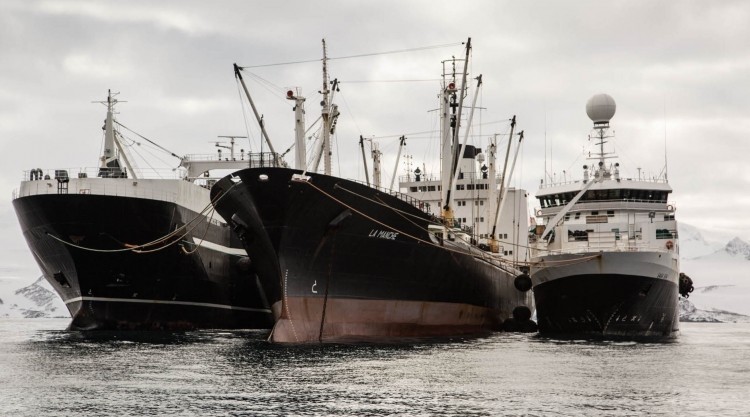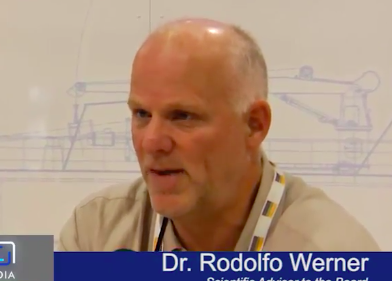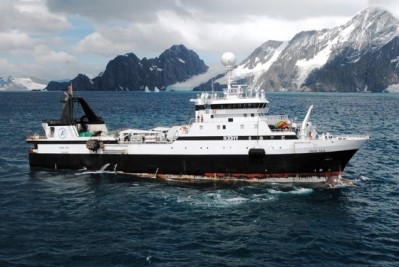Nascent fund calls for research proposals pertaining to krill sustainability

The Antarctic Wildlife Research Fund (AWR) formally launched only last week at the Expo West/Engredea trade show in Anaheim, CA. AWR is a cooperative venture of the Antarctic and Southern Ocean Coalition, World Wildlife Fund Norway and Aker BioMarine, the world’s largest harvester of krill. The fund seeks to act cooperatively with CCAMLR (Commission for the Conservation of Antarctic Marine Living Resources), the multinational body that governs the utilization of ecosystem resources in Antarctic waters.
One of the first officials on board, science advisor Dr Rudolph Werner of Argentina, characterized the krill fishery as mankind’s “last opportunity to get it right.” By that he means that the krill fishery is still in a state of infancy compared to the harvest levels of other more established fisheries such as cod, herring, sardines and anchovy. In some other fisheries, such as cod in the norwestern Atlantic, by the time problems with the fisheries were noted, it was too late. Unsustainable harvest levels, rapidly expanding fishing fleet capabilities in the shape of bigger, more sophisticated and more powerful boats and poorly coordinated multi national management of the fishery were to blame. In Antarctica the regulatory and science scheme is coming together before the fishery comes under severe pressure, Werner said, giving time to make sure that catch quotas are supported by data and those quotas are respected.
Dr Phil Trathan, chair of the AWR Scientific Advisory Group, said the fund “shows a real commitment from the fishing industry to engage in sustainable practices that are built upon the solid foundation of scientific evidence. Not only will this fund help build a sound basis for management, but it will hopefully also help foster closer collaboration between scientists from many different nations.”
Call for research
The fund aims to broaden and deepen the field of krill research. The species is obviously the focus of commercial interest, but it is also coincidentally the crux of the Antarctic marine ecosystem. “Everything in Antarctica either feeds on krill or feeds on something that feeds on krill,” Werner said.
For the initial proposals, which can be submitted up to June 16, AWR is looking for projects on the order of $25,000 to $100,000. A total of $250,000 will be awarded in this initial go-round, the organization said.
Proposals must match AWR’s research goals. These are varied, but all relate to krill in some way. The organization intends to find out more about how the acoustic information from sonar scans is used by fishing vessels and what it says about the health and size of the krill swarms both before and after a net passes through.
AWR also wants to fund the deployment of acoustic devices to get more data on where krill can be found at various times of year and how they move around. Harvest quotas are all fine and good, but a catch level that might not make much of a dent in the overall population picture for the species might inadvertently allow a vessel to scoop up too many krill in a given area, causing hardship or even starvation for the predators, such as whales, seals, penguins and other birds, seeking to feed there.
The fund also has a goal of funding detailed studies on predator species, on their feeding and breeding habits, to get better benchmark data on the health of these populations. Finally, the fund will seek proposals on various “desk-based” management and modeling schemes to better assemble and use the data that will be generated.
In addition to the founding members, AWR has received support from BioMar, Blackmores, Dr.Mercola, Ridley and Swisse.
To find out more about the fund and how to submit a grant, click here.















